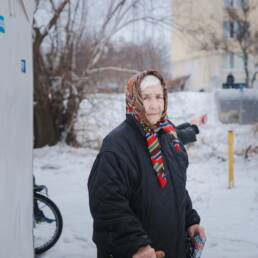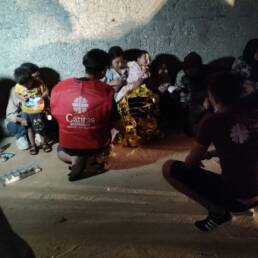On the occasion of the World Refugee Day we call on European states to honour the commitment made in December 2019 at the first Global Refugee Forum to resettle 30,000 refugees in 2020, and to protect the right to asylum and to non-refoulement in Europe.
The COVID-19 pandemic has hit refugees and asylum seekers particularly hard, many of whom are living in overcrowded camps or in destitution, or are facing a higher risk of exploitation.
During the pandemic, border closures and travel restrictions resulted in undermining access to asylum and protection in Europe. In many countries asylum registration, interview and processing have been put on hold or turned online, along with the challenges this raises. Resettlement, which provides a safe pathway to a safe country for thousands of people stuck in refugee camps, are currently on hold for an indeterminate period of time. Urgent action is needed now.
States must uphold the right to asylum in Europe and the principle of non-refoulement; the response to the pandemic and its aftermath should not be used to undermine refugees’ rights.”
Maria Nyman, Caritas Europa Secretary General.
“States should step up resettlement and complementary pathways, such as the delivery of humanitarian visas, for instance”, she added.
More than ever, we need global solidarity towards those fleeing war, crisis and persecution, and towards developing countries that already host 85% of the world’s refugees and that are themselves facing unprecedented public health challenges.
The global refugee population stands at an all-time high of 29.6 million people, part of the 79.5 million people who were displaced at the end of 2019, according to the most recent report by UNHCR, the UN Refugee Agency. Additional challenges created by the virus and the response to it, such as, for instance, food insecurity or decrease of livelihoods, risk further increasing forced displacement.
Caritas Europa is also very concerned by the recent events and confusion over search and rescue and disembarkation unfolding in the Central Mediterranean Sea. This includes the lack of search and rescue capacity, the closure of ports by Malta and Italy, the detention of rescued migrants on private ships off Maltese territorial water, and allegations of push backs to Libya with the complicity of EU states. A coordinated response anchored in the respect of international law and a relocation mechanism among states is needed and must be the basis for the creation of a stable solidarity and responsibility sharing mechanism in the upcoming EU pact on asylum and migration.
The COVID-19 recovery phase should have global solidarity at its core and be inclusive. It should leave no one behind, including of people seeking protection.
Notes to the Editor
- On World Refugee Day, Caritas is launching the social media campaign #whatishome to highlight the importance of migrant contributions to both their countries of origin and receiving countries. This is as part of the MIND project.
- On May 7th, Caritas Europa co-signed a joint statement calling to “Uphold refugees’ rights at Europe’s internal and external borders”, amid concerns that several states are using the COVID-19 crisis as a pretext to suspend the human rights of displaced people.
- For more solutions for refugees trapped in camps, see Caritas Europa’s publication on ‘Fostering community sponsorship in Europe’.
- Released on April 16th, the EC Guidance on the implementation of relevant EU provisions in the area of asylum and return procedures and on resettlement in the context of COVID-19 calls for access to the asylum procedure to continue to the greatest extent possible (including asylum registration and process).
- See UNHCR, Global trends report, forced displacement in 2019.
- See UN Policy Brief: COVID-19 and People on the Move, and UNHCR Key Legal Considerations on access to territory for persons in need of international protection in the context of the COVID-19 response.
- On the situation in the Central Mediterranean sea, see the Council of Europe Commissioner for Human Rights’ statement on the situation of more than 400 persons kept on private ships just outside Malta’s territorial waters, published early June.
More information
Leïla Bodeux
Senior Policy and Advocacy Officer
Tel: +32 (0)2 235 26 55
Mob: +32 (0)478 585 409
lbodeux@caritas.eu




